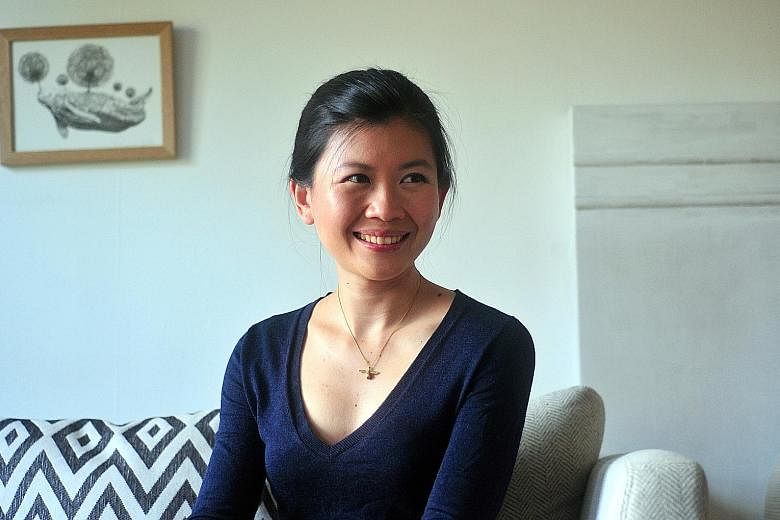When Singaporean Rachel Heng first toyed with the idea of writing a novel, she imagined - based on what she had read online - that it would be a 10-year slog to getting published.
Little did she expect that her 29th birthday last month would see her debut novel get scooped up by major publishers in Britain and the United States, just three years after she began writing short stories.
Her novel, a literary science-fiction work tentatively titled Suicide Club, is set in a near-future dystopia where the average life expectancy is 300 years and society is obsessed with wellness and genetic perfection. It is expected to be released in August next year.
It was acquired in auction by Sceptre, the literary imprint of British publishing house Hodder & Stoughton, and by publisher Henry Holt & Co in the US. Sceptre publishes the likes of David Mitchell, author of metafictional novel Cloud Atlas (2004) and one of Heng's literary heroes.
While she declines to reveal exact figures, she says that after conversion to Singapore currency, both deals were six-figure sums.
"It was one of the most surreal days of my life," she says over the telephone from London, where she is based. The former investment manager, who married her university sweetheart earlier this month, has since quit her job to focus on writing.
"I am used to massive rejection," she adds. "I submitted 200 short stories to publications and got six acceptances."
She majored in comparative literature and economics at Columbia University in New York, but chose a career in finance. It was her Swiss boyfriend, now husband, who started pushing her to take up creative writing.
Suicide Club grew out of an early short story she wrote on a long-haul flight, in which a man goes to a party that turns out to be a funeral.
In the world of her novel, the pursuit of immortality means that those with superior genes and longer predicted lifespans are allocated the best resources, while the physically inadequate are pushed to the margins. Dying is simply not considered a socially acceptable thing.
Sceptre editorial director Melissa Cox describes Heng's debut as an "electrifying, hell-for-leather kind of book" which also "asks big questions".
Heng's debut comes at a time when lifestyle brands such as actress Gwyneth Paltrow's Goop push products such as healing stickers and vaginal jade eggs, and people "Instagram themselves thin" by posting streams of workout photos hashtagged #fitspo (short for "fit inspiration").
"There is a kind of morality about it, that if you don't take care of your body, you're a terrible person," says Heng, who is not the pinnacle of wellness herself. Until the age of 21, she "didn't really eat vegetables".
"Now I try to be moderate and exercise twice a week, but sometimes I just want to eat chicken rice every day."
She wanted to explore the commodification of the body, "what the market economy does to our notion of human worth". She recalls an argument she once had with someone in the finance industry who believed that kidneys should be traded on the open market.
One of her novel's protagonists, Lea, is a high-flying organ trader with a superior genetic code, who is forced to confront the cracks in the system after an accident mars her physical perfection.
The other is Anja, a musician whose mother is in a coma because the black-market organs she procured to extend her lifespan are shutting down. To end her mother's life, she seeks the help of the Suicide Club, an outlawed activist group that campaigns for the right to assisted suicide.
Although the novel is set in futuristic New York, Heng says her experience of growing up in Singapore influenced its themes - "what it's like to be in a high-pressure society with a paternalistic government, where what is successful is narrowly defined".
She started working on her novel during a six-month night course with the Faber Academy, a writing school associated with publisher Faber & Faber. At the end, she read an excerpt to a room full of agents, 11 of whom approached her afterwards with interest. She spent the next six months finishing the novel, waking up at 6am to write before she went to work.
Next month, she will head to the Michener Center For Writers at the University of Texas in Austin to pursue a three-year master of fine arts in fiction and screenwriting under the James A. Michener Fellowship.
She joins a growing group of Singaporean writers, such as Balli Kaur Jaswal, Kevin Kwan and Ovidia Yu, who are making a name for themselves internationally.
"With the world becoming more globalised, there's more access to information and more transparency around how the publishing industry works," she says.
"But I think the quality in Singapore writing has been there all along."


